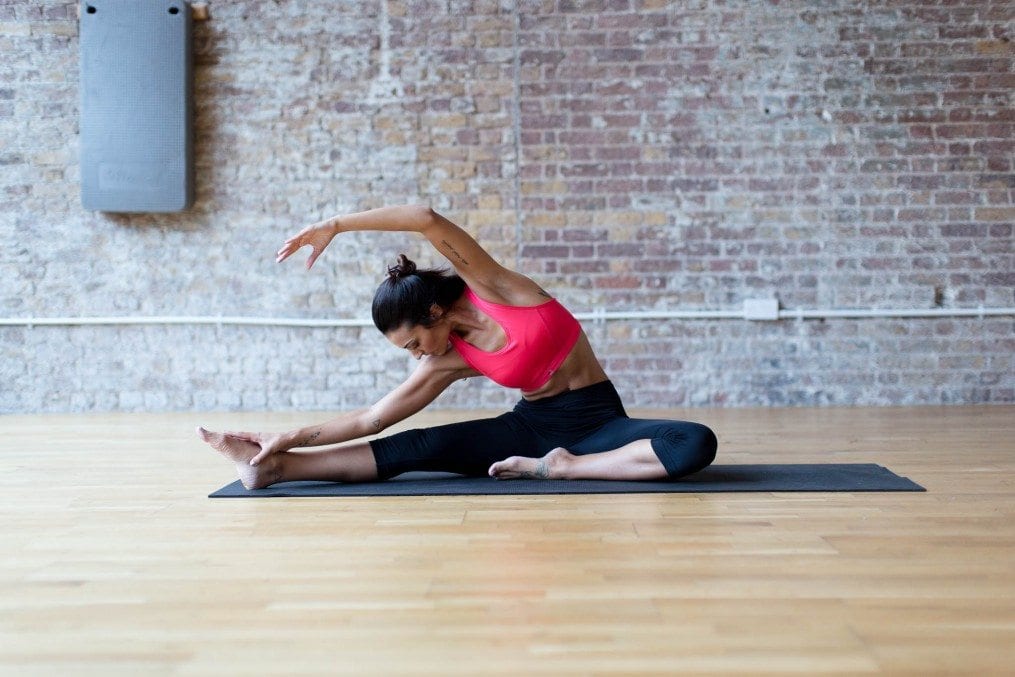How to improve your fitness mindset

Words: Anna Berrill
Runner Lynsey Sharp had the words ‘Get out strong, commit’ written in black marker pen on the back of her hand when she won the silver medal at the 2014 Commonwealth Games. Olympic cyclist Laura Kenny, formerly Trott, steps on a wet towel in her socks before a race. Whether inspirational phrases or superstitions act as your fitness motivation, no race was ever won without mental grit. But is that something only elite athletes are born with, or can it be learned when our own fitness levels reach a plateau? Hugh Gilmore, performance psychologist at the English Institute of Sport, reveals how you can think your way to victory.
Is it all in our heads?
‘Humans are attracted to the bigger goal that they can see in a year’s time,’ says Gilmore, ‘but if you want to win in the future, you have to focus on What’s Important Now (or WIN). Stalled progress or even failure is only feedback – performance is a journey and it’s supposed to challenge and develop you. Therefore, it’s important to ask yourself, “How is this challenging me, and what is this challenge developing in me?” Prioritising and planning are key psychological skills which underpin success.’
Mental grit
‘This term has been created by academics and is a relabelling of another psychology phrase, “conscientiousness”. The term is not as important in applied psychology – aka psychology that solves practical problems. It’s more to do with how you think about what mental grit can help you achieve. If you think that being “grittier” would help you to get out of bed in the morning and train before work, then set your alarm and plan to do it. One of the key fitness tips that we can learn from is that setting precise plans predicts behaviour. Instead of using terms like “mental grit”, just ask yourself what dedication could help you physically do, and then plan to do that. Doing is being.’
Sports psychology
‘Plan, prepare, practise and perform makes a great rule of thumb, but often people miss out on the practise side of things. People exercise in comfortable conditions that don’t offer much adversity. The nice, air-conditioned gym is a far cry from going for a run up Northern Ireland’s Mourne Mountains in January, for example. Simulated tough competition experiences such as running outside will challenge you, and add variability to your training. They’ll also expose performance gaps, and give you an opportunity to learn how to cope better. If you can make your training tougher than the race itself, then you will be psychologically prepared.’
Is winning the goal?
‘The key to long-term development is to look at what you do as a challenge, rather than simply focusing on the winning. That said, you definitely need to act in the present moment when you’re competing. Three questions to ask yourself are: What is the current trade-off for focusing on winning? Are there better alternatives to concentrate on? And what evidence do I have that fixating solely on winning will benefit me now? Research shows that people who focus on ways they could lose, and then plan how to overcome this, are more likely to outperform others during competition.’
Race day
‘Preparation is the biggest source of confidence. This is why performance reviews are critical after the last race, as they allow you to get ready for the next one. I tell athletes that preparation is always positive if you focus on the positive facts about your performance. In elite sport, it’s often said that how fast we learn is our only advantage. The more you know about your previous performances, the easier it will be to come up with a solid race plan, and react to different venues and conditions.’









